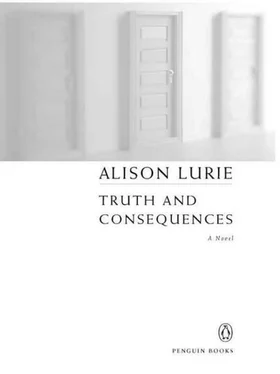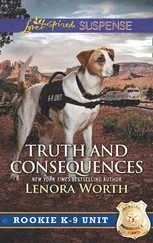“Yeah. But it’s only for a little while.”
“Oh? How long?” Jane was feeling colder and colder, even though Henry’s arm was around her shoulders.
“I don’t know.”
Jane said nothing, but she took a step back.
“We’ll be together very soon, I hope. When things are easier.”
Jane looked at Henry, his square shoulders, his thick curly hair, and the strong blunt lines of his face. He’s here, but he’s not really here, she thought. I can’t count on him.
SIXTEEN
It had been another strange week for Alan Mackenzie. By Friday he felt as if he had been on a long alternately exhilarating and exhausting nature hike of the sort he remembered from camp, slogging up steep slopes and down into thick swamps. The highs had been his meetings with Delia, his restored ability to drive, and another sale at the gallery in New York. There had also been the soggy lows of persistent backache, obsessive jealousy, a growing despair about his work, and the sudden awkward reappearance of Jane in his life.
On Friday night he lay awake between three and five a.m., suffering from pain and artistic depression. He could not find a comfortable position—the lizard kept shifting its grip, alternately clawing his lower back and left hip. Also something he had eaten, or the drugs he had taken, was causing severe gaseous indigestion. Since Jane had moved to her parents’ house the suppers she left had been getting less and less attractive, culminating last evening in a nasty congealed-looking macaroni and cheese casserole with lima beans. Either she was punishing him with worse and worse meals, or she was (no doubt unconsciously) trying to poison him.
If Alan’s friends and colleagues knew that his wife had left him and gone home to her mother, dinner invitations would have been forthcoming. But as yet he had not told anyone, because he assumed that, as Delia put it, Jane would soon come around and make this admission unnecessary. Also, he didn’t want to answer the inevitable question, Why has she left you? either with a lie or with the truth.
Worst of all, as he stared into the cold blackness of the cloudy November night, he had finally admitted to himself that he was sick of miniature ruins of famous public buildings. The first dozen or two had been exciting and satisfying; but lately, as he turned the pages of travel books looking for possible subjects, he had begun to feel weariness, even disgust. Maybe, even probably, his career as an artist was over almost before it had begun. Delia Delaney loved him—anyhow, she had often allowed him to love her. But when she knew he was finished as an artist, she would be disappointed and maybe even scornful, as she had been about her husband’s giving up poetry. (“He had a couple of bad reviews, and couldn’t take it.”)
At five a.m. Alan unwound himself from his snarled sheets and blankets and staggered into the bathroom. In the smudged, foggy glow of the night-light, he saw the face of a hysterical aging loser: in chronic pain, deserted by his wife, probably about to be dropped by his mistress, and without inspiration. Someone who might as well be dead.
But on his way back to bed, dizzy with drugs and nausea and despair, he had a revelation. By accident he switched on the wrong light in the hall and saw, blindingly white against the black of an unused bedroom, part of a wall, an open door, and a wooden goose in graceful flight toward the dark. He stopped in his tracks, flash-frozen. The scene was fragmentary, but also eternal That section of wall, that doorway, that chair, that motionless yet moving white bird, could have been— could be , made of plaster or stone or painted metal. It could stand free, as another kind of artificial ruin—perhaps comic, perhaps ironic, perhaps tragic.
And if this vision could be made three-dimensional, so could other fragments of domestic architecture, each with its own complex, interlocking meanings. The monumental, even mythic corner of a kitchen, with dishes in the rack and a window open over the sink, a knife and a half-sliced tomato on the sill. A bathroom with crumpled hanging towels, a dining room with part of a table, dishes, glasses, a napkin thrown down—
Or a section of wall from his childhood bedroom, with a half-open casement window, his narrow maple bed with its ball-topped posts and thrown-back patchwork quilt; his toy Scottish terrier and suspended model airplane, frozen in time like the ruins of Pompeii. All white—or, maybe more interesting, in a spectrum of sepia browns or grayed pastels.
And he needn’t limit himself to domestic architecture, or to this country, Alan saw suddenly. The images could come from anywhere and anywhen. All of history and geography was available to him. Colonial, Victorian, Art Nouveau, Art Deco, Modern—Medieval, Renaissance, eighteenth-century—anything, everything. Fragments of schools, stores, libraries, offices, churches—the haunting architectural equivalents of a George Segal sculpture—
Yes. He could do it. And as an architectural historian he could make all these ghostly tableaux authentic, with the right door and window frames, shutters, cornices, chairs, hanging garments, decorative objects.
Though it was still densely dark outside, Alan did not return to bed. Instead he pulled his navy blue wool bathrobe over his pajamas, went into the study, and located a pad and drawing pencils. In too much of a hurry to retrieve his briefcase/toilet seat from downstairs, he stood in front of a file cabinet and made notes and sketches for well over an hour without stopping. Sometimes he paused for a few moments, overcome with awe and gratitude for the revelation that had come to him. Delia was right, he thought: this gift he had received was a by-product of pain and illness.
At dawn, stiff and chilled, he set the sheets of paper he had covered aside, took more codeine, and collapsed into bed, where he slept until noon. Waking, he feared at first that he had dreamed the whole thing. But the drawings were there, and in the light of day they still looked good: better than good. He dressed, made himself tea and toast, and, ignoring the pain in his back as much as possible, got out some paper and old paints, and began to convert his first sketch into a colored drawing. Delia will like this, he thought. She always has a special feeling for birds.
He was halfway through a second—the attic of his parents’ house this time, with its little round window, the upper left-hand pane cracked in a partial star, the old brass-hinged and brass-hasped trunk underneath, and the discarded dressmaker’s dummy (terrifying at five, still sinister and melancholy when he left for college) leaning toward the light at an angle—when he heard the kitchen door open.
“Hello, it’s me,” Jane’s voice called.
She’s brought some even more inedible, poisonous supper, Alan thought. He put down his brush, vexed at the interruption. Then, to prevent his wife from coming upstairs and seeing his new drawings, which she would probably like as little as the earlier ones, he descended to the kitchen. Jane was standing by the sink in front of a brown paper bag of groceries, wearing baggy jeans and a Gore-Tex windbreaker For years he had thought of his wife as amazingly pretty: now she seemed ill-dressed, commonplace, and undersized, and her curly brown hair was much too short. Had she deliberately made herself unattractive, or was it that since he’d known Delia his idea of beauty had shifted?
“Oh, hello there,” he said. “Look, you don’t have to bring me supper anymore. I can drive now, I can manage on my own.”
“That’s all right,” Jane told him. “I mean, you don’t have to. I’ve decided it’s time for me to come home, anyhow.” She indicated her suitcase by the back door.
“Oh yes?” Alan smiled only briefly. “That’s good,” he heard himself say rather flatly. He was surprised at his lack of relief—because this was what he had wanted, wasn’t it?
Читать дальше







![Кэмерон Доки - Правда и ее последствия[Truth and Consequences]](/books/79610/kemeron-doki-pravda-i-ee-posledstviya-truth-and-con-thumb.webp)




